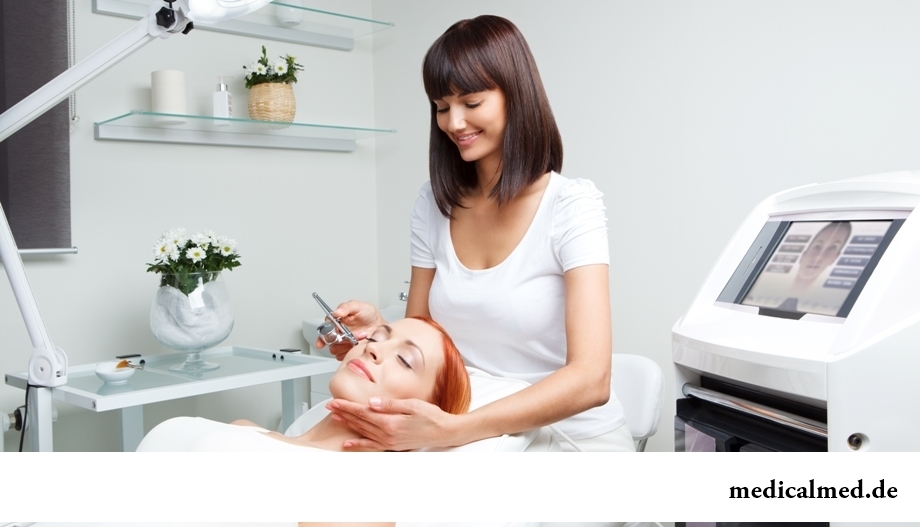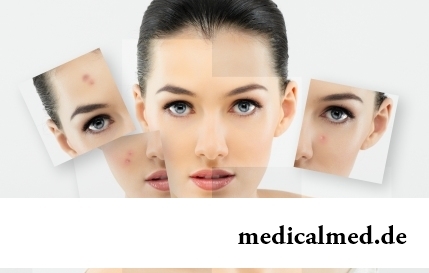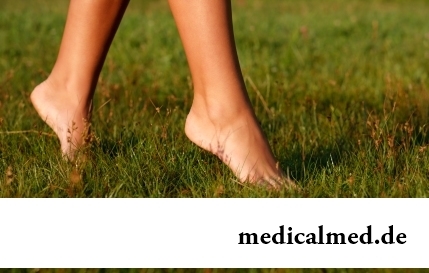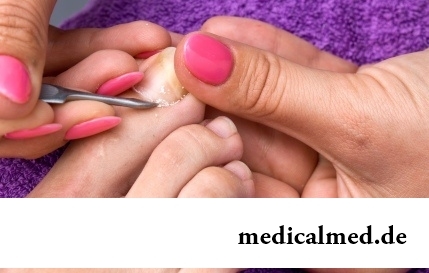





Cosmetologist
The cosmetologist – the doctor who deals with problems of skin of a body and person. The cosmetologist defines the general condition of skin and recommends preventive and medical cosmetic procedures. The cosmetologist deletes a nevus pigmentosus, birthmarks, vascular asterisks, etc.

If necessary the cosmetologist can direct the patient to other specialists – the endocrinologist, the dermatologist, the surgeon-cosmetologist.
Education of the cosmetologist allows it to define type of an integument of the patient and to appoint individual procedures, necessary for it. Besides, the cosmetologist knows all skin diseases and is engaged in their treatment. The competent cosmetologist, according to reviews, will be able always to define a disease which disturbs the patient and to appoint adequate treatment.
Now education of the cosmetologist includes, in addition to performance of ordinary procedures for maintenance of good shape of skin, practically all techniques of therapeutic cosmetology in a body and a face.
What diseases the cosmetologist treats?
Services of the cosmetologist include treatment of eels, spots, acne, acne disease, and also removal of scars on a body and a face after operations, eels and injuries, improvement of healing of fresh hems, removal of hems.
The cosmetologist treats also excess growth of hair in the face and a body by means of modern methods of removal of hair (a bioepilation, an electroepilation), including in armpits, the zone "bikini", on a face, a breast.
Besides, enters services of the cosmetologist:
- Diagnosis and treatment of a rozatse or pink eels;
- Removal of warts by means of coagulation, liquid nitrogen;
- Treatment of dry warts (bottom callosities);
- Treatment of a demodicosis (skin tick);
- Removal of keratomas, birthmarks, mollusks, papillomas;
- Treatment natoptyshy, callosities, cracks and the grown nail, a medical pedicure;
- Prevention of a senilism (removal of hypostases, circles under eyes, smoothing of wrinkles);
- Treatment of a nevus pigmentosus by complex whitening of pigmentation or removal taking into account process of pigmental education;
- Treatment of cellulitis;
- Removal of extensions after the delivery;
- Correction of a figure.
When it is necessary to resort to services of the cosmetologist?
- At emergence on leather of eels, enlarged skin pores, skin coarsening which leads to appearance of black eels;
- At a peeling and slackness of skin when skin looks dim;
- In case of burning and an itch on skin after putting cosmetics;
- During the reddening and an inflammation in the form of a small tortoiseshell in places of use of cosmetics;
- At puffiness century, lips and frequent acne enanthesis;
- At allergic reactions of mucous membranes of a nose, throat, the sky, at an itch of a throat and the sky, a nose congestion, nasal allocations;
- At emergence of dark circles under eyes, hypostases, mucous allocations in corners of eyes, spasmodic pains around eyes;
- At frequent reddening of vessels of eye proteins, emergence of allergic scaly rashes and barley on the surface of an upper eyelid.
What analyses the cosmetologist can demand?
The cosmetologist can direct the patient to delivery of the following analyses:
- General blood test;
- General analysis of urine;
- Herpes infections;
- Syphilis;
- Measles;
- Scrapings from a nail and skin on existence of fungi;
- Scrapings from eyelashes and skin on presence of mites (демодекс);
- Gerpevirusa (1-6 types) and virus of herpes of the person;
- Allergological Ig G panel;
- Puncture cytology of skin;
- Immunoglobulin E (IgE);
- Allergological screening (the inhalation, mixed adult mixed children's, food).
Types of diagnoses which are carried out by the cosmetologist
Education of the cosmetologist allows it to carry out the following types of diagnoses:
- Cytology – studying of structure of cells for diagnosis of a virus of papilloma of the person, a carcinoma cutaneum, a vesical dermatosis, bazalioma;
- Rhematoid factor;
- Microscopy – a skin scraping for diagnosis of itch, mycoses;
- Histology – a skin biopsy for morphological confirmation of the diagnosis;
- Diagnosis of diseases of a pancreas and liver;
- PTsR-diagnosis for the purpose of definition of infections of skin;
- Immunofluorescent research for diagnosis of autoimmune diseases.
Councils of the cosmetologist
According to cosmetologists, observance of these simple councils is excellent prevention from various diseases of skin:
- Follow rules of personal hygiene;
- Before drawing a make-up it is necessary to wash up a face and hands carefully;
- Never allow to use your decorative cosmetics to other persons;
- Before purchase of cosmetics it is better to check it. For this purpose it is necessary to ask the pure applicator for the seller, and also to ask to wipe a packaging opening with alcohol;
- Places in which cosmetics is stored have to be kept clean;
- Do not subject cosmetics to influence of direct sunshine, observe the recommended temperature condition of storage;
- If you have an infectious disease of eyes (for example, conjunctivitis), you should not use decorative cosmetics for eyes.
- After you cure an infection, it is not recommended to use old cosmetics for eyes;
- If color of cosmetics changed or appeared an unpleasant smell, cosmetologists do not advise to use it. It can mean that the preservatives which are contained in cosmetics do not fight against bacteria any more;
- Regularly you purge applicators and cosmetic brushes;
- Before use of cosmetics make sample test. Put a small amount of funds for an internal part of an elbow. If for two days no changes happened, cosmetics can be used if on skin reddening appeared, the itch, a swelling, then this means does not suit you;
- Spirits should be applied not on skin, and on clothes. It will help to avoid possible reaction to fragrances;
- Remember that labels on cosmetics "it is tested by dermatologists", "hypoallergenic", "is suitable for sensitive skin" are not a guarantor of your safety. One companies hold testing, and others – are not present. No rules concerning that this information was specified on the label, exist.
Antidepressant Klomipramin causes an orgasm in 5% of patients.

For the person who daily since morning gathers for work it is very important to wake up vigorous and ready by day of work. On most...
Section: Articles about health
Each person has easy indispositions which he transfers "standing", trying not to ask for medical care. Arguments at the same time are adduced same: "it is a trifle, itself will pass", "I have too many important issues", "there are no wish to spend time on...
Section: Articles about health
The nature does not stand stagnation and monotony. It is known that tissues of a human body atrophy if do not receive necessary loadings. It fully belongs also to a cerebral cortex: when it is not given full-time job, it begins to function worse. As a result memory decreases, the person becomes less bright, acquires information more slowly, hardly switches from one thought to another. There are problems at work, difficulties with communication and career development. These it is unpleasant...
Section: Articles about health
The thought that the mass of their body is too big at least once in life visits from 80 to 95% of women. Many...
Section: Articles about health
Tuberculosis – a serious infectious disease which development is caused by mycobacteria (Koch's bacilli). The illness is known from an extreme antiquity. Long time fight against it was considered as ineffective. Quite often the disease affected the whole families, and mortality from it was very much...
Section: Articles about health
Each failure in work of bodies and systems of a human body is, as a rule, shown by the whole complex of symptoms. In particular, malfunctions with health often cause emergence of cosmetic defects in the form of rashes on a face. Experienced doctors know that localization of heat-spots usually depends on what disease the patient has....
Section: Articles about health
The phenomenon of the panic attack is known long ago, but the reasons of its emergence still are up to the end not found out. It is established that more than 30%...
Section: Articles about health
Weakness of an ankle joint – very widespread problem. Its existence is demonstrated by tendency to a podvorachivaniye of legs when walking on heels, frequent painful sprains, pain on average and anonymous toes even after small nagruzo...
Section: Articles about health
Antibiotics - - it is possible to call the chemical compounds suppressing growth of bacteria the break in the field of medicine which allowed to save mankind from many diseases incurable earlier: tuberculosis, plague, syphilis and many others. The contribution of drugs to rescue of people from epidemics of dangerous infections is huge, however at careless use antibiotics are capable to cause to an organism serious damage. Negative action can be shown in the form of easing of immunity, disturbance of balance of microflora in кишеч...
Section: Articles about health
Sometimes it seems that modern society was divided into two camps: representatives of the first are sure that has to for contraception отвеч...
Section: Articles about health
Any of us is not insured from a heavy illness of the loved one. Happens and so that someone from family members becomes the bed patient, and remains in such state for a long time. It extremely suppresses both the most injured, and all it to...
Section: Articles about health
It would seem, to buy drugs in Moscow does not make a problem – a drugstore, and not one, is available for each resident of the capital within walking distance. And, nevertheless, Internet drugstores become more popular – what it is possible to explain such phenomenon with? Actually there is a lot of reasons and if to formulate them it is short, then the most suitable word will be - "conveniently". We suggest to get acquainted in more detail with pluses and minuses of online drugstores that buying drugs, not to make the wrong choice....
Section: Articles about health
Many of us, probably, noticed more than once that from intellectual loadings at some point the brain as though "overheats" also "assimilation"...
Section: Articles about health
Aspirin (acetylsalicylic acid) – one of those drugs which are known literally to all. It is available in each home first-aid kit, and many accept it at the first signs of an indisposition, often without having a fair idea of properties and a therapeutic eff...
Section: Articles about health
From the failure of work of immune system which is shown in the form of an allergy, statistically, more than 40% of the population of the globe suffer. In most cases pathological reactions cause the substances which are contained in food stuffs, hair of animals, medicines, goods of household chemicals, cosmetics, pollen of plants, etc. On the one hand, the disease such is capable to spoil quite thoroughly to the person life....
Section: Articles about health
Very often as a source of the infection which caused a disease serves our house - the place which a priori has to be safe. However...
Section: Articles about health
Such trouble as the milkwoman's attack, at least once in life happened almost to each woman. Prevalence of a disease is explained by the fact that the causative agent of an illness belongs to the so-called opportunistic microflora living on mucous an obol...
Section: Articles about health
Turnip, radish, horse-radish – once these and other products enjoyed wide popularity at our ancestors, being not only the food sating an organism but also the medicines curing of many diseases. Unfortunately, the use of some of them got out of fashion long ago, and once favourite plants and vegetables almost ceased to make a contribution to human health. Inclusion of such products in a modern diet − an effective measure of prevention and treatment of diseases which seldom suffered...
Section: Articles about health
Epilepsy is one of widespread neurologic diseases. To parents, whose children suffer from this illness, it is necessary...
Section: Articles about health
Beauty shop – the place which is associated only with positive emotions: joy, pleasure, relaxation. However visit of salon where work with biological material of clients, not always harmlessly is conducted. Today it is known Bol...
Section: Articles about health
In consciousness of our many compatriots idea that folk remedies if are no more effective, than medicinal "chemistry" strongly took roots, then are precisely less harmful. Unfortunately, it is not always fair: some methods of treatment consecrated with "century national experience" can work so on the patient that it will need urgent intervention of physicians....
Section: Articles about health
Let's begin with the fact that a separate illness which is called "adjournment of salts", just does not exist. In practice this household name of plank beds...
Section: Articles about health
Nightmares belong to the most unpleasant frustration. Statistically, they happen at 4% of adults, and almost at 70% of children and teenagers. During a nightmare of people dreams himself in extremely difficult, life-threatening situation. It wakens suddenly, in...
Section: Articles about health
Today about 30 diseases, sexually transmitted are known. Wide circulation of these illnesses is extremely promoted by the dual attitude towards them: on the one hand, most of people know about "shameful" diseases very little and do not aim at receiving detailed and reliable information, considering that such problems personally will never concern them. With another – there are delusions about STD which instill unreasonable confidence that troubles such...
Section: Articles about health
Life of the modern child is extremely active and difficult. Information strain which is experienced by the school student and did not dream the pupil...
Section: Articles about health
You are office worker, the driver, the fan of winter sports or do not think of life without bicycle? You lead a slow-moving life and you move on the city only on the car? You have no constant partner and you do not love the protected sex? Attention! You one...
Section: Articles about health
80% of women at least once to lives complained of discomfortable feelings to breasts, consolidations and nagrubaniye. These are mastopathy symptoms. The mastopathy is characterized by change of a ratio between ferruterous and connective tissue tissues of mammary glands. It can lead to formation of cysts (a cystous mastopathy), gland consolidation (a fibrous mastopathy), or a combination of these processes (a fibrous and cystous mastopathy)....
Section: Articles about health
